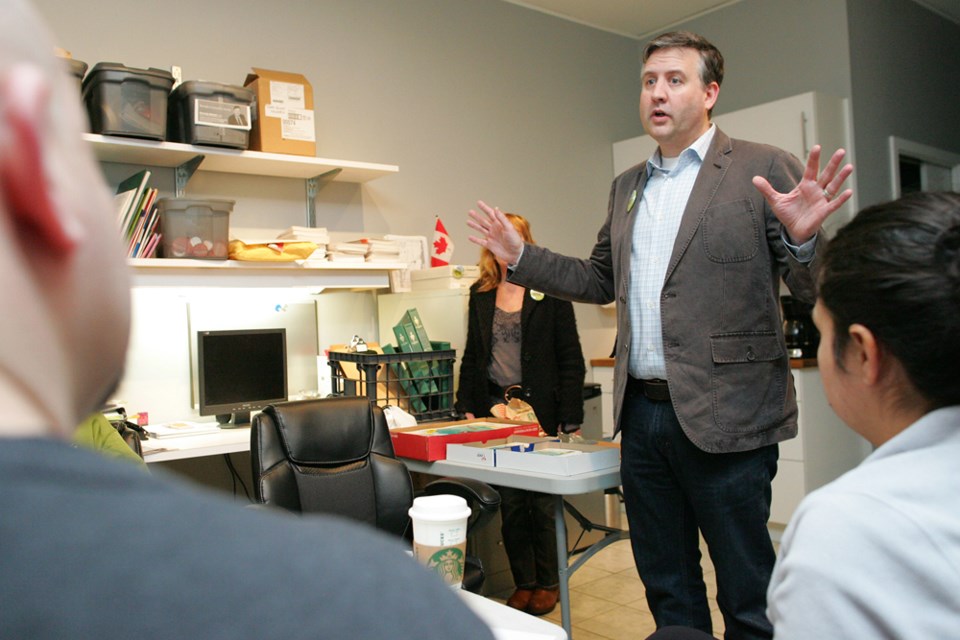The federal Liberals inched a step closer to a national housing strategy on Wednesday by announcing an investment of $11.2 billion over 11 years in the 2017 budget.
The money will be used to build, renew and repair Canada’s affordable housing stock, according to the official document.
But Kennedy Stewart, NDP MP for Burnaby South, says cities like Burnaby, where finding an affordable place to live is getting harder and harder, need the federal dollars now.
“If they were serious about this, they would make the money come faster because it really is a crisis in our community,” he said.
Stewart pointed to the 200 new non-market housing units recently approved by Burnaby city council. Via density bonus money the city receives from new developments, the city gives city-owned land to non-profits looking to build affordable housing.
“As a municipality, Burnaby is carrying the load. It’s really at the local level we’re getting the new housing,” said Stewart. “We haven’t had a single unit of federal housing built in Burnaby since the Liberals came to power, and we won’t have one built before the next election. We’re getting lots of hyperbole, but in the end, there’s not a lot of construction.”
Terry Beech, Liberal MP for Burnaby North-Seymour, called the housing investment the largest of its kind in Canadian history.
“This is the Government of Canada getting back into housing affordability in a big way,” he said. “There will be significant investments made starting right away.”
Beech said his party is taking a new approach to the affordability crisis by investing “in all sides of the housing continuum.”
“We’re going to work with municipalities and the province and the private sector to leverage our investments and make sure that people can afford to live where they work,” the MP added.
The Liberals’ new National Housing Strategy includes a $5-billion national housing fund “to address critical housing issues, and better support vulnerable citizens,” according to the 2017 budget.
The strategy also includes renewing the federal-provincial-territorial housing partnership by injecting $3.2 billion over 11 years to provinces and territories. The money would go towards things like rent subsidies and renovations and repairs of existing housing.
Another $2.1 billion over 11 years will be used to tackle homelessness. The Liberals also plan to give up more federal land for affordable housing and create a new national housing database, one that will track purchases, sales, demographics, financing and foreign ownership.
A few budget highlights:
·Tax levied on tobacco and alcohol products will be raised; both rates will be adjusted every April 1 starting in 2018, based on the Consumer Price Index.
·The Public Transit Tax Credit will be eliminated, effective July 1, 2017.
·Phasing out the Canada Savings Bond program, which was created in 1946. The federal government says since reaching its peak in the late 1980s, the program has experienced a “prolonged decline.”
·Canada’s deficit is $23 billion in 2016/17, and will be $28.5 billion in 2017/18. By 2021/22, that figure should be down to $18.8 billion.
·40,000 new subsidized daycare spaces across Canada by 2018.
·An investment of $43 million over five years, starting in 2017/18 and $9.2 million per year thereafter, to allow expectant mothers to claim maternity benefits 12 weeks before their due date (expanded from the current standard of eight weeks).
·A boost of $90 million over two years to support indigenous peoples and their post-secondary education (approximately 4,600 students).
·Ensuring ride-sharing services like Uber are paying GST and HST, just like the taxi industry does.



